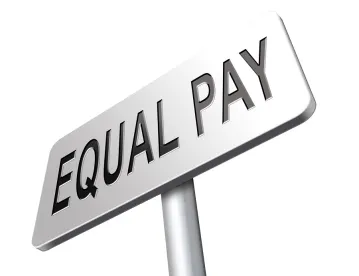On August 1, 2016, Massachusetts became the first state to bar employers from asking job applicants about their salary history before making a formal job offer that includes compensation. Under the new law, employers may not seek information about an applicant’s salary history from the applicant or his or her current or former employer unless the applicant voluntarily discloses such information or gives the prospective employer written authorization to obtain such information after an offer of employment with compensation terms has been made.
The sweeping measure also expands the Massachusetts Equal Pay Act, which prohibits employers from paying any employee less than an employee of the opposite gender for comparable work, in several other important ways.
-
The new law broadens the definition of “comparable work” to include work that is “substantially similar” in that it requires substantially similar skill, effort and responsibility and is performed under similar working conditions. Employers can no longer rely on a job title or description to determine whether work is “comparable” and must apply the “substantially similar” test. Wage differences are permitted if they are based on certain legitimate business reasons, such as a merit system, geographic location, education, seniority, or experience where such factors are reasonably related to the job. However, employers may not reduce seniority based on an employee’s time spent on leave related to pregnancy or protected parental, family, or medical leaves.
-
The new law also makes it unlawful for employers to try to prevent employees from discussing, inquiring about, or disclosing information about their compensation. While employers need not respond to employee requests for such information, employers cannot stop employees from sharing this information amongst themselves.
-
Finally, the new law provides employers an affirmative defense against equal pay claims if they have engaged in a good faith self-evaluation of pay practices and can demonstrate that they have made “reasonable progress” toward eliminating compensation disparities based on gender.
Claims under the new equal pay law may be filed directly in court, which means there is no requirement to file with the Massachusetts Commission Against Discrimination. Damages for successful litigants include the amount of unpaid wages, plus liquidated damages and costs and reasonable attorney’s fees.
What This Means for Employers
While the new law does not go into effect until July 1, 2018, employers should begin taking steps now to ensure compliance, including the following:
-
Job applications that seek past salary information, or interview notes or guidance that include questions on salary history, must be revised to eliminate such questions.
-
For multi-state employers, applications should, at a minimum, be updated to indicate that Massachusetts applicants should not answer any salary history questions.
-
Any employees involved in recruitment and/or interviewing should be trained on the new law and instructed not to seek salary history information.
-
Company policies that prohibit employees from discussing compensation with their coworkers must be revised to clarify employees’ rights to engage in such conversations. Employers should also consider adding more robust equal pay language to employee handbooks.
With respect to conducting an internal compensation audit, employers should explore this topic with legal counsel and consider doing so after the Massachusetts Attorney General’s Office issues further guidance on the good faith self-evaluation defense.




 />i
/>i
